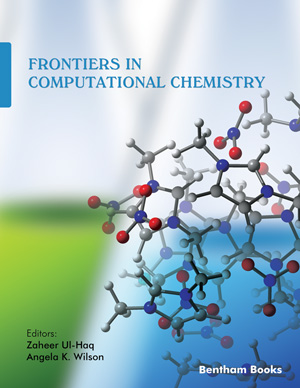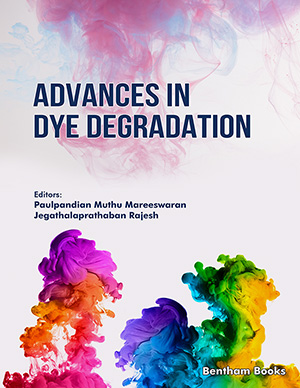Abstract
Chronic myeloid leukemia (CML), a myeloproliferative disorder characterized by the BCR-ABL oncoprotein, presents its treatment based on tyrosine kinase inhibitors (TKIs), mainly imatinib. However, despite its clinical success, almost 30% of all CML patients demand alternative therapy. In this context, the development of drugs capable of overcoming TKIs resistance is imperative. The pterocarpanquinone-LQB-118 is a novel compound with anti-tumor effect in CML cells whose mechanism of action is being elucidated. Here, we demonstrate that in two CML cell lines exhibiting different biological characteristics, LQB-118 modulates NFκB subcellular localization, apparently independently of the AKT and MAPK pathways, partially inhibits proteasome activity, and alters the expression of microRNAs -9 and -21.
Keywords: Cancer, chronic myeloid leukemia, microRNA, multidrug resistance phenotype, NFκB, pterocarpanquinone-LQB-118.
Anti-Cancer Agents in Medicinal Chemistry
Title:NFκB Pathway and microRNA-9 and -21 are Involved in Sensitivity to the Pterocarpanquinone LQB-118 in Different CML Cell Lines
Volume: 15 Issue: 3
Author(s): Fernanda Costas C. de Faria, Maria Eduarda Bento Leal, Paula Sabbo Bernardo, Paulo R.R. Costa and Raquel C. Maia
Affiliation:
Keywords: Cancer, chronic myeloid leukemia, microRNA, multidrug resistance phenotype, NFκB, pterocarpanquinone-LQB-118.
Abstract: Chronic myeloid leukemia (CML), a myeloproliferative disorder characterized by the BCR-ABL oncoprotein, presents its treatment based on tyrosine kinase inhibitors (TKIs), mainly imatinib. However, despite its clinical success, almost 30% of all CML patients demand alternative therapy. In this context, the development of drugs capable of overcoming TKIs resistance is imperative. The pterocarpanquinone-LQB-118 is a novel compound with anti-tumor effect in CML cells whose mechanism of action is being elucidated. Here, we demonstrate that in two CML cell lines exhibiting different biological characteristics, LQB-118 modulates NFκB subcellular localization, apparently independently of the AKT and MAPK pathways, partially inhibits proteasome activity, and alters the expression of microRNAs -9 and -21.
Export Options
About this article
Cite this article as:
de Faria Costas C. Fernanda, Bento Leal Eduarda Maria, Bernardo Sabbo Paula, Costa R.R. Paulo and Maia C. Raquel, NFκB Pathway and microRNA-9 and -21 are Involved in Sensitivity to the Pterocarpanquinone LQB-118 in Different CML Cell Lines, Anti-Cancer Agents in Medicinal Chemistry 2015; 15 (3) . https://dx.doi.org/10.2174/18715206113139990108
| DOI https://dx.doi.org/10.2174/18715206113139990108 |
Print ISSN 1871-5206 |
| Publisher Name Bentham Science Publisher |
Online ISSN 1875-5992 |
Call for Papers in Thematic Issues
Induction of cell death in cancer cells by modulating telomerase activity using small molecule drugs
Telomeres are distinctive but short stretches present at the corners of chromosomes and aid in stabilizing chromosomal makeup. Resynthesis of telomeres supported by the activity of reverse transcriptase ribonucleoprotein complex telomerase. There is no any telomerase activity in human somatic cells, but the stem cells and germ cells undergone telomerase ...read more
Role of natural compounds as anti anti-cancer agents
Cancer is considered the leading cause of worldwide mortality, accounting for nearly 10 million deaths in 2022. Cancer outcome can be improved through an appropriate screening and early detection and through an efficient clinical treatment. Chemotherapy remains an important approach in treatment o f several types of cancers, even though ...read more
Signaling and enzymatic modulators in cancer treatment
Cancer accounts for nearly 10 million deaths in 2022 and is considered the leading cause of worldwide mortality. Cancer outcome can be improved through an appropriate screening and early detection and through an efficient clinical treatment. Chemotherapy, radiotherapy and surgery are the most important approach for the treatment of several ...read more
 62
62
- Author Guidelines
- Graphical Abstracts
- Fabricating and Stating False Information
- Research Misconduct
- Post Publication Discussions and Corrections
- Publishing Ethics and Rectitude
- Increase Visibility of Your Article
- Archiving Policies
- Peer Review Workflow
- Order Your Article Before Print
- Promote Your Article
- Manuscript Transfer Facility
- Editorial Policies
- Allegations from Whistleblowers
Related Articles
-
Skin Cancers in Elderly Patients
Anti-Cancer Agents in Medicinal Chemistry Editorial [Hot Topic: Overview of Antiangiogenic Therapies in Hematological Malignancies (Guest Editor: D. Ribatti)]
Current Cancer Drug Targets Metastatic Cell Dormancy and Re-activation: An Overview on Series of Molecular Events Critical for Cancer Relapse
Anti-Cancer Agents in Medicinal Chemistry Ribonucleases and ImmunoRNases as Anticancer Drugs
Current Pharmaceutical Design Neurocysticercosis: The Enigmatic Disease
Central Nervous System Agents in Medicinal Chemistry Lymphoblastoid Cell Lines Models of Drug Response: Successes and Lessons from this Pharmacogenomic Model
Current Molecular Medicine Chitinases: Biomarkers for Human Diseases
Protein & Peptide Letters Monoclonal Antibodies in Cancer Therapy
Current Medicinal Chemistry - Anti-Cancer Agents Targeting the Ubiquitin Proteasome System: Beyond Proteasome Inhibition
Current Pharmaceutical Design PARP Inhibitors in Epithelial Ovarian Cancer
Recent Patents on Anti-Cancer Drug Discovery Intracellular and Extracellular miRNAs in Regulation of Angiogenesis Signaling
Current Angiogenesis (Discontinued) Difluorinated Curcumin: A Promising Curcumin Analogue with Improved Anti-Tumor Activity and Pharmacokinetic Profile
Current Pharmaceutical Design Prospects and Limitations of T Cell Receptor Gene Therapy
Current Gene Therapy Signal Transduction Therapy with Rationally Designed Kinase Inhibitors
Current Signal Transduction Therapy The Use of Anthracyclines for Therapy of CNS Tumors
Anti-Cancer Agents in Medicinal Chemistry Impact of Leukemia Stem Cells Phenotype Expression on Response to Induction Therapy in Acute Myeloid Leukemia Patients
Cardiovascular & Hematological Disorders-Drug Targets New Molecular and Cellular Targets for Chemoprevention and Treatment of Skin Tumors by Plant Polyphenols: A Critical Review
Current Medicinal Chemistry Diagnostic Methods in the Detection of Prostate Cancer: Prospective Observational Study
Current Medical Imaging Hematopoietic Growth Factors Support in the Elderly Cancer Patients Treated with Antiblastic Chemotherapy
Anti-Cancer Agents in Medicinal Chemistry Multi-Kinase Inhibitors
Current Medicinal Chemistry



























